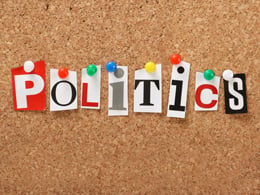 Sometimes, I really hate being right. A few weeks ago, I wrote that the Washington, DC, political environment had deteriorated and that the current go-round on the debt ceiling was likely to be even more contentious than the last one, two years ago. Sure enough, with the resignation of Speaker John Boehner—and the withdrawal yesterday of his heir apparent—the House appears ungovernable. Without some type of Republican internal agreement on at least whom to elect as speaker, it’s hard to see any resolution to the debt ceiling debate, which is likely going to hit in the next couple of weeks.
Sometimes, I really hate being right. A few weeks ago, I wrote that the Washington, DC, political environment had deteriorated and that the current go-round on the debt ceiling was likely to be even more contentious than the last one, two years ago. Sure enough, with the resignation of Speaker John Boehner—and the withdrawal yesterday of his heir apparent—the House appears ungovernable. Without some type of Republican internal agreement on at least whom to elect as speaker, it’s hard to see any resolution to the debt ceiling debate, which is likely going to hit in the next couple of weeks.
Is no deal better than a bad deal?
The failures are not just on the Republican side. Mrs. Clinton has denounced the Pacific trade pact, which not long ago—as secretary of state—she endorsed as a “gold standard” for trade deals. Why the change? Because it looks like she is losing ground to Bernie Sanders on her left. Sanders, of course, is the Democrat version of the Tea Party Republicans in the House. Both sides are pulling their standard bearers to the extremes.
Many would argue this is a good thing: better no deal than a bad deal. In some cases, I have sympathy for this argument. The problem, at least in the case of the debt ceiling, is that the alternative to a bad deal on raising the ceiling is not “no deal,” but a U.S. default, which isn’t a better alternative to anything. Similarly, the alternative to the Pacific trade deal is not “no deal,” but having China continue to dominate its area and lock the U.S. out of trade relationships.
The need to govern
The essence of politics is to enable agreement between very different priorities and to come up with something that may look bad—to both sides—but avoids something worse. Specifically, the point of politics is to govern. But there is a large faction in the House Republicans, and potentially in the Democrats, that explicitly rejects the need to govern. This is a bigger problem than it seems—one that now represents the biggest risk to the economy.
Approaching the edge
As investors, we are used to measuring return—opportunity—against risk. Politics has historically done the same thing, with politicians weighing the expected benefits of a policy against the likely costs. Instead, in what I see as the failure of politics, some players are now looking only at the returns and ignoring the risks. This does not end well in investing, and it will not end well in politics either.
Remember, the risks the politicians are ignoring now include eroding the fundamental basis of the world financial economy: the credit rating of the U.S. We have been through this a couple of times before, so perhaps there is a perception that the risk is not as bad as it looks. It is, though, and every time we get closer to the edge, falling over becomes more probable.
The big risk
The current political environment is an early warning for what could become a very unpleasant year-end in the markets. Economically, we are in reasonable shape. The markets seem to be resuming an upward path. So, be calm but pay attention. Politics is becoming the major risk—and it is a big one.


 Print
Print


